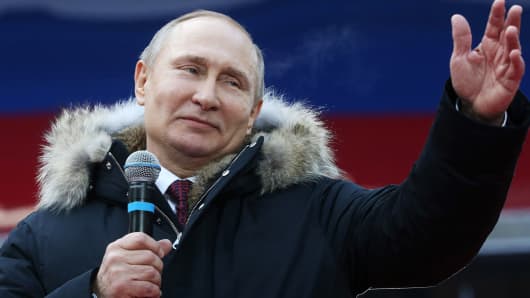As Russia prepares for its presidential election on Sunday, its economy remains a primary consideration for voters.
But despite long-running economic burdens ranging from entrenched corruption and low growth to Western sanctions and fluctuating oil prices, UBS and J.P. Morgan see cause for confidence in the country's near-term future.
Russia has recovered from its two-year recession, growing an estimated 1.4 percent last year, according to UBS, a growth driven largely by improving domestic demand and investment. The bank expects its gross domestic product (GDP) to continue growing for the next two years.
Incumbent President Vladimir Putin, who is expected to win in a predictable contest in which viable opponents were barred from running, enjoys high popular approval ratings of near 80 percent, according to polls. The election's democratic credentials have been widely criticized, both domestically and internationally.
But while Putin's continued tenure won't be a surprise, a new and potentially reformist cabinet will be central to defining any future structural reforms.

